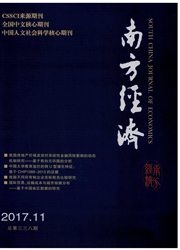

 中文摘要:
中文摘要:
基于产权管制放松的分析视角,本文构建一个政治风险下农民和国家的动态博弈模型来解释中国两次农业生产危机。此外,本文利用1959—1961年与1970—1977年两次中国农业生产危机的省级面板数据对理论模型进行了实证检验。结构突变面板计量结果表明,国家不会主动削弱自己的谈判能力,除非政策失误或外部竞争压力造成的冲击才可能迫使它在产权管制放松的博弈谈判中让步。
 英文摘要:
英文摘要:
This paper builds a dynamic game model about peasant and the State under the political risk to explain the internal logic of deregulation of rural land property rights after twice agricultural crisis in China. What' s more, it employs the history panel data of two China' s agricultural production crisis from 1959 through 1961 as well as 1970 through 1977 and conducts the empirical test upon its theoretical model. The Structure Break Panel econometric outcomes show that the State won' t cut down its bargaining power on the regulation of property rights, except from the conflict of the policy errors or the competition pressure from the world outside.
 同期刊论文项目
同期刊论文项目
 同项目期刊论文
同项目期刊论文
 期刊信息
期刊信息
